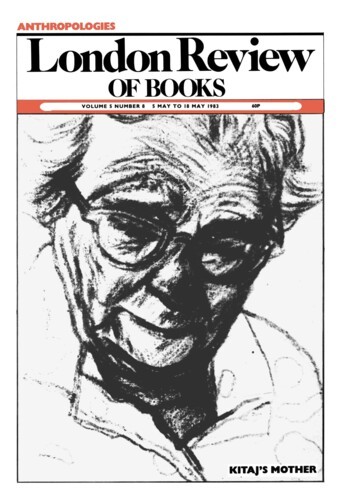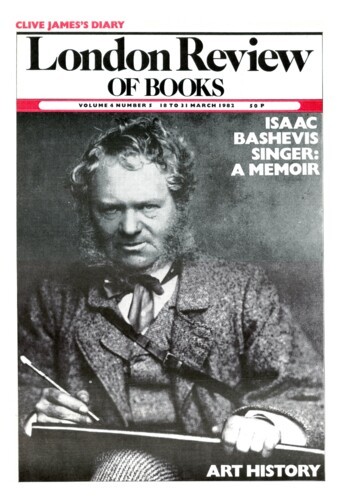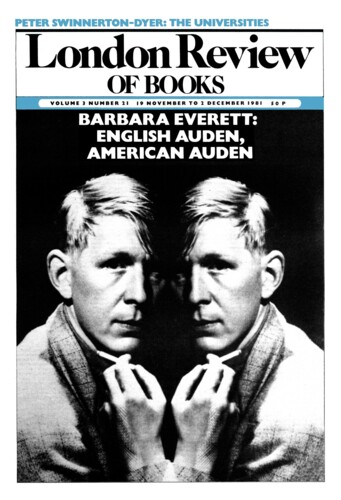Joseph Jobson
Patrick Wormald, 18 April 1985
Claude Lévi-Strauss and others have been in the habit of describing the expansion of European civilisation as an unmitigated catastrophe for the rest of mankind. It is arguable that not the least of its casualties has been the West’s sense of its own limitations. From the conquest of Mexico and Peru until 1941 (at the earliest), Europe’s onward march seemed unstoppable, fuelled as it was by a combination of immeasurably superior technology and an ineffable sense of cultural superiority. Even the Turk, who was obliterating a whole European army and hammering at the gates of Vienna just as Pizarro was butchering the Incas, was, by the 18th century, the Sick Man of Europe (the first of many), and could be rolled aside by the gallantry of Lawrence in the 20th. The events of the second half of the 20th century, especially those of the last decade, have been a salutary reminder that Western ascendancy was short as well as nasty and brutish. In particular, the West, with its own established religion in decay, has grossly underestimated Islam. From the death of Muhammad to the decline of the Ottomans, the most formidable military and economic power in the world was usually Islamic, and the Arabs did a much better job of preserving antique civilisation in the lands they conquered than did the German invaders of the Roman Empire: until the 19th century, it is likely that the incidence of literacy was far more widespread in Islamic than in Christian territory, and the standard of medical treatment far higher.





